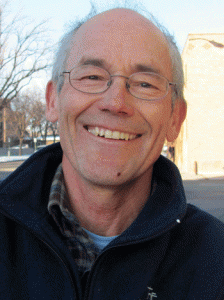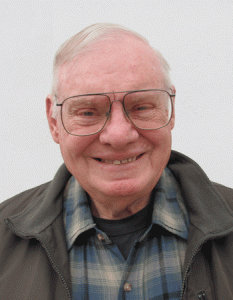Earlier this month, Western Colorado Congress was sucker-punched by the fracking industry.
We shouldn’t have been surprised, but a Western Slope Colorado Oil & Gas Association (WSCOGA) spokesperson attacked WCC. The tirade appeared in the Sunday, August 10th edition of the Grand Junction Daily Sentinel, claiming our grassroots group was killing jobs, stopping progress and using double-talk.
The topic: WCC’s supposed support for “responsible” oil & gas drilling.
WSCOGA’s Executive Director David Ludlam said we were opposed to all drilling, and our push for better practices masks real intent. Because WCC wants smarter industrial practices, company accountability and investment in health, our members must have an “anti-modernity ideology”. Since WCC thinks drilling requires new guidelines, we were deemed obstructionists.
WCC is not backing-down from efforts to protect public health or conserve cherished landscapes. We know common-sense values like safety precautions, and clean air and water, are on our side. Drilling in Colorado is near record pace, anyway, and contrary to industry claims, companies enjoy robust profits. They can afford to pay a higher price for safer extraction of our natural resources.
Our response to Ludlam’s tirade, submitted for the WCC Board by WCC President Rein van West and Bob Arrington, was printed in the Sunday, August 24th Sentinel. Both pieces appear below.
You can keep the conversation going by submitting your own letter-to-the-editor to the GJ Daily Sentinel at [email protected]
How long must we endure patronizing insincerity from activists?
Sunday, August 10, 2014
By David Ludlam, executive director of the West Slope Colorado Oil and Gas Association (WSCOGA)
Sensory adaptation: The phenomenon of human senses gradually numbed by over-exposure — an evolutionary gift to humankind. Were it not for the beauty of sensory adaption millions of parents would be institutionalized today. How else, if not for gradual dulling of auditory inputs, would we have survived ad nauseam playback of Disney’s 2014 theme song du jour, “Let it Go”?
Sensory adaption helps me professionally, too. Especially when it comes to local activists. Groups like Western Colorado Congress for years have obstructed energy development out one side of the mouth while proceeding to claim support for responsible drilling out the other. In the past this tactic made steam come from my ears. Today, through repetitious exposure, my ears luckily have adapted selective deafness to these hypocrisies. I do often wonder though: just how many times must the business community endure such patronizing insincerity?
In fact, just this month Western Colorado Congress put our community on notice that they are bringing yet another local drilling project to a screeching halt. Luckily for me, in the same breath, the organization put our minds at ease. While obstructing Fram’s local drilling project, the WCC was sure to note in the same announcement that they still “support efforts to tap the rich oil and gas resources of our region.”
Western Colorado Congress often makes these type of statements despite a track record of working to stop or slow drilling in Delta County, Roan Plateau, Vermillion Basin, South Shale Ridge, Thompson Divide, Rulison, White River National Forest and in countless other campaigns to make drilling in Western Colorado cost prohibitive.
When push comes to shove who really knows if activists will succeed in destroying Fram’s local investment. But their intent to do so begs a larger question: Has the organization ever supported a drilling project of any kind? Their standard pretext for stopping projects is old and predictable. So old, in fact, that we’ve all been sorta lulled into a here-they-go-again contagion. With a collective shrug of the shoulders, we assume confronting these people, whose only institutional accountability is to various strains of anti-modernity ideology, is a fool’s errand.
So if Western Colorado Congress in 31 years has never supported a single drilling project anywhere, then why do they feel the need to always say they support responsible drilling?
Environmental groups of all shapes and sizes as a standard practice hedge their activism claiming to support for at least some level of conditioned development. This is necessary so as not to alienate rational people in the middle. The practice is a deliberate and effective rhetorical device called abatement. To abate is to add meaningless statements after a provocation to reduce the impact of what was previously said. Example: “We the Western Colorado Congress here do by declare that we shall stymie, stall and stalemate Fram’s local drilling project, but we support efforts to tap Western Colorado’s rich oil and gas resources.” Huh?
Rather than accepting these absurdities at face value, we must begin questioning them. Inquiries should be made: Specifically, just where are these rich oil and gas resources they purportedly support “tapping into?” Township, section and range please!
Revenues from oil and gas development are supporting a rebuild of the Avalon Theatre through energy grants. Monies from oil- and gas-related taxes supported Grand Junction’s downtown revitalization effort during the last decade. Royalties from oil and gas development today are funding the town of Palisade in rebuilding Main Street. That in turn, supports agri-tourism, farmers’ markets and festivals. These and hundreds of other projects are assets we all love no matter our personal politics. All these projects in some way also rely on industrial development that must occur someplace, somewhere in and or around some community. Perhaps asking Western Colorado Congress just where they do support drilling might be more instructive than shooting at the straw men they levy on specific projects.
There is nothing wrong with WCC opposing oil and gas development — it’s America for heavens’ sake! But the local business community truly has limited patience for insult to intelligence.
The rational middle in the valley should be spared the sensory adaption required to stomach obligatory tag lines from activists claiming to “support responsible development.” When it comes to this tactic —WCC should simply Let it Go.
Responsible drilling means setting the bar higher than some like
Sunday, August 24, 2014
By Rein Van West and Bob Arrington on behalf of WCC Board of Directors
Thanks to David Ludlam of the West Slope Colorado Oil and Gas Association for bringing up Western Colorado Congress (WCC) and our work in the Sentinel’s Sunday, Aug. 10 edition.
In the column, WCC was attacked and readers were given a skewed perspective on our work. We appreciate the opportunity to speak for ourselves, although we wish it were under different circumstances.
WCC is a grassroots nonprofit based in Grand Junction with more than 1,500 members across the Western Slope. From Steamboat Springs to the San Juan Mountains, we elevate local voices in natural resource and community decisions, including oil and gas. We are your neighbors working for conservation, sustainability, public health and social justice. We are farmers, teachers, nurses, royalty owners, janitors and retired professionals. Our coalition of volunteers is involved in public land management, energy development, local food and agriculture and other communitywide issues.
WCC empowers and encourages people to speak out. We listen to those who have been bullied or impacted by oil and gas, and help folks navigate the bureaucracy so their voice strengthens outcomes. For instance, we work with retirees from Battlement Mesa to ensure health protections before drilling starts near homes. We involve Whitewater ranchers and Grand Valley residents in fracking decisions along Grand Mesa. And, we team up with locals, farmers and irrigation districts to hold back drilling’s footprint in the North Fork Valley of the Gunnison River. In each example, it is only right to ask for industry constraint.
Until we transition to renewable energies, we need oil and gas but it has to be done right. That means updating rules, investing in monitoring sites, and establishing health protections. Drilling, fracking, flaring and other aspects of oil and gas pose legitimate threats to health, safety and the environment. Accidents happen, fires spark, and mitigation is not a dirty word. Responsibility means conserving sensitive areas, communities, farmland and waterways. Extra precautions are prudent, just like a speed limit sign helping travelers stay safe.
About 500 spills happened last year alone, and yet industry says policies from decades ago don’t need updates. Our state has over 50,000 active oil and gas wells, but only a handful of inspectors. Northeast Colorado’s historic flood of 2013 inundated oil and gas sites near floodplains, yet we have minimal rules protecting riparian areas and water systems. Adding insult to injury, a pipeline ruptured into a Garfield County tributary of the Colorado River, contaminating both water and air in 2013. It doesn’t take much to see we could have serious problems if we don’t usher in a new era of higher industry standards, better implementation and accountability.
WCC has significant support from Colorado communities, individuals and organizations. People want common-sense protections for their rivers and towns, not less. There’s no amount of advertising money that can change that. In fact, a Colorado College “State of the Rockies” poll says that more than 70 percent of Colorado voters would vote for a candidate seeking increased protections for public lands.
Responsible energy development means knowing about impacts, proactively mitigating issues, and ensuring additional measures where necessary. It means setting a high bar, and requiring companies to achieve necessary thresholds. Currently available technologies can reduce impacts and additional innovation can only add assurance. Recently, a handful of operators supported new air quality rules for their emission sources, as well. The resulting measures, with WCC participation, will cut leaks, including natural gas, which helps both air quality and company bottom lines. Western Slope COGA and friends could act similarly.
Rather than stick to relevant, ongoing policy discussions, a paid industry spokesperson attacked our stakeholder organization striving for regulatory improvements. A real conversation that leads to win-win solutions is one that exchanges name-calling and hyperbole for legitimate recognition of industry impacts. For example, state rules allow fracking as close as 500 feet from a house and 1,000 feet from a school or church. Unfortunately, there are exemptions to these and other rules allowing dangerous activities even closer.
Closing loopholes and holding companies to high standards is the right thing to do. True, industry provides financial benefits to surrounding communities, but companies can also afford investing in extra protections. Industry ultimately strives to achieve their shareholders’ immediate goals, nothing less. On the other hand, WCC represents member interests for multigenerational public health, safety and quality-of-life concerns. Oil and gas could collaborate much more, or they can continue trying to discredit groups representing everyday folks who want more say so over industry decisions affecting their lives.
We appreciate the chance to discuss the need to update oil and gas regulations in Colorado. Readers can learn more about Western Colorado Congress at wccongress.org


